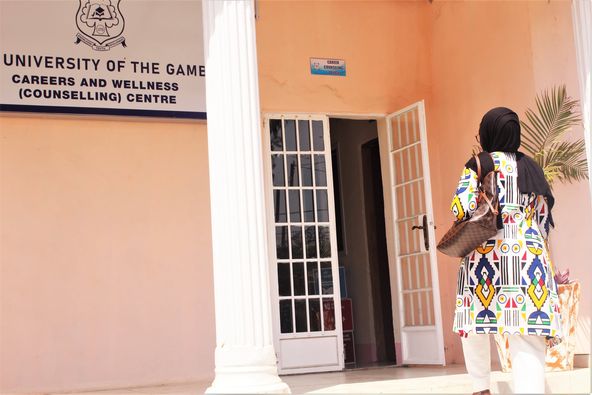Gambiaj.com – (BANJUL, The Gambia) – A recent study published in the Advances in Social Sciences Research Journal has highlighted the significant impact of field-of-education-job mismatch on the current earnings of recent graduates from the University of The Gambia (UTG). Conducted by Lala Jaiteh from The Gambia’s Ministry of Finance and Economic Affairs, Gon Xing from Central China Normal University, and Abou Sidibe, a teacher from Mali, the research sheds light on the challenges faced by graduates in securing jobs relevant to their field of study, as well as the implications for their income and job satisfaction.
The study focused on graduates from the 2016-2019 cohort at UTG’s School of Arts, Sciences, and Humanities. Using a mixed-method approach of surveys and interviews, the research revealed that the mismatch between graduates’ education and their jobs is prevalent, with over half (56.4%) of participants indicating that their current employment did not align with their field of study. This mismatch has had significant consequences on their earnings, with 38.5% of graduates earning between GMD 3,000 and GMD 5,000 monthly—far below what many expected to earn upon graduation.
Employment and Income Realities
Of the 250 surveyed graduates, only 18 (7.2%) were unemployed, suggesting that attending the University of The Gambia positively impacts job prospects, an encouraging result.
Despite UTG’s ability to increase the employability of its graduates, the study revealed that only 6.7% of the employed graduates earned a monthly salary of GMD 16,000 (US$250) or more. The majority were stuck in low-paying, non-graduate positions that offered little room for career advancement. Furthermore, many participants expressed frustration over income irregularities, with some depending on inconsistent earnings from businesses or enterprises.
The research also highlighted how dissatisfaction permeates the graduates’ experiences in the job market. Only 41% of those surveyed expressed satisfaction with their current jobs, while the remaining 59% felt discontented with the limited opportunities to apply their knowledge or advance in their careers.
Field-of-study Relevance and the Oversupply of Graduates
A critical issue raised in the study is the lack of alignment between UTG’s curriculum and the needs of the Gambian labor market. Only 43% of employed graduates reported that their jobs were relevant to their college majors. This disconnect has left many graduates feeling trapped in an oversaturated job market, where fields such as arts and humanities are particularly oversubscribed.
The study’s findings underscore the need for a curriculum overhaul at UTG to reflect the evolving demands of the labor market. The researchers called for the inclusion of potential employers in the curriculum development process to better align the university’s degree programs with job market requirements.
Recommendations for Improvement
The study’s authors put forth several recommendations to address the mismatch and improve the employment prospects of UTG graduates. Among these are calls for the establishment of a Graduate Employment Information Database System (GEIDS) to monitor the employment outcomes of graduates and guide curriculum reforms.
Additionally, the researchers emphasized the importance of early career guidance for students, suggesting that providing labor market information during their academic journey could help them make informed decisions about their studies. Furthermore, the study recommended that the government enact policies to ensure equal access to job opportunities and reduce the favoritism and patronage that currently pervade the labor market.
As the Gambian economy struggles with job market saturation and a stagnant growth rate, the mismatch between education and employment opportunities has left many graduates financially vulnerable and dissatisfied with their career trajectories. The study underscores the need for systemic reforms in higher education and labor market policies to ensure that graduates are better equipped for the demands of the 21st-century workforce.
In the face of these challenges, collaboration between UTG, employers, and government bodies is seen as essential for closing the gap between the skills acquired in university and the demands of the job market, ultimately improving the employment prospects and earnings of future graduates.










